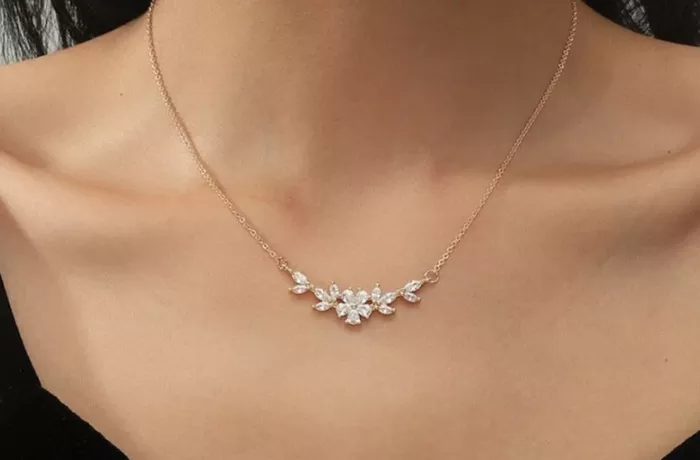Custom diamond pendants are not just accessories; they are reflections of personal style and luxury. When considering the cost of a custom diamond pendant, several factors come into play, each contributing to the final price tag. From the quality and size of the diamonds to the intricacy of the design and craftsmanship involved, every element influences the overall cost. This article delves into the various aspects that determine the price of a custom diamond pendant, offering insights into what you can expect when investing in this exquisite piece of jewelry.
Understanding Custom Diamond Pendants
A custom diamond pendant is a bespoke piece of jewelry designed to meet specific preferences and requirements. Unlike ready-made pendants, which are mass-produced and readily available in stores, custom pendants are crafted uniquely for individual clients. This exclusivity not only adds sentimental value but also affects pricing significantly.
Factors Affecting the Cost
1. Diamond Quality
The quality of diamonds used is perhaps the most significant determinant of price. Diamonds are graded based on the 4Cs: cut, color, clarity, and carat weight. Each of these factors contributes to the overall beauty and value of the diamond. High-quality diamonds that are well-cut, colorless or near-colorless, internally flawless or have minimal inclusions, and are of substantial carat weight command higher prices. Custom pendants often feature diamonds that meet stringent quality standards, pushing up the cost.
2. Design Complexity
The complexity of the design plays a crucial role in pricing a custom pendant. Intricate designs that require detailed craftsmanship and precise setting of multiple diamonds will naturally cost more than simpler designs. Custom jewelers may charge additional fees for elaborate designs that involve intricate patterns, custom engraving, or unique settings.
3. Metal Choice
The type of metal used for the pendant setting also influences its price. Common choices include gold (yellow, white, or rose), platinum, and sterling silver. Gold is typically priced based on its purity (karats), with 18k and 14k being popular choices for durability and richness. Platinum, known for its strength and rarity, is the most expensive option but offers exceptional durability and a distinctive white sheen that complements diamonds beautifully.
4. Labor and Craftsmanship
The craftsmanship involved in creating a custom diamond pendant is a significant cost factor. Experienced jewelers spend hours meticulously crafting each piece, from initial design sketches to the final polishing stages. Labor costs can vary depending on the jeweler’s expertise, location, and the complexity of the project. Custom pendants may also involve additional costs for customizations, such as hand-engraving or personalized touches.
5. Brand and Reputation
The reputation and brand of the jeweler or jewelry designer can impact pricing. Established jewelers with a strong reputation for quality and craftsmanship often command higher prices for their custom pieces. Their expertise, use of high-quality materials, and attention to detail contribute to the overall value proposition of the pendant.
See Also: How Often Should You Clean Diamond Pendants?
Pricing Examples and Considerations
To provide a clearer understanding of pricing, let’s consider a few hypothetical examples based on different scenarios:
Example 1: Simple Design with Moderate Diamond Quality
A custom pendant featuring a simple design with a modest-sized diamond (around 0.50 carats) of good quality (G color, VS clarity) set in 14k gold might range from $1,500 to $3,000, depending on the jeweler and specific customization requests.
Example 2: Elaborate Design with High-Quality Diamonds
An intricately designed pendant featuring multiple diamonds (totaling 1.50 carats) of excellent quality (D color, VVS clarity) set in platinum could range significantly higher, from $10,000 to $20,000 or more, considering the cost of materials, craftsmanship, and exclusivity.
Choosing the Right Jeweler
When investing in a custom diamond pendant, choosing the right jeweler is crucial. Consider the following tips:
Reputation and Reviews: Research the jeweler’s reputation, read customer reviews, and ask for references or portfolios of previous work.
Expertise and Experience: Look for jewelers with extensive experience in custom jewelry design and a proven track record of delivering high-quality pieces.
Communication and Collaboration: Ensure the jeweler understands your vision and preferences. A reputable jeweler will work closely with you throughout the design process, providing guidance and expertise while respecting your input.
Certifications and Guarantees: Ask about certifications for diamonds (e.g., GIA or AGS) and inquire about guarantees or warranties offered on the pendant.
Conclusion
Investing in a custom diamond pendant is a decision that combines personal taste with financial commitment. By understanding the factors influencing pricing, from diamond quality and design complexity to craftsmanship and jeweler reputation, you can make an informed decision that aligns with your preferences and budget. Whether as a gift for a loved one or a statement piece for yourself, a custom diamond pendant represents not just luxury but also a timeless symbol of individuality and elegance.

